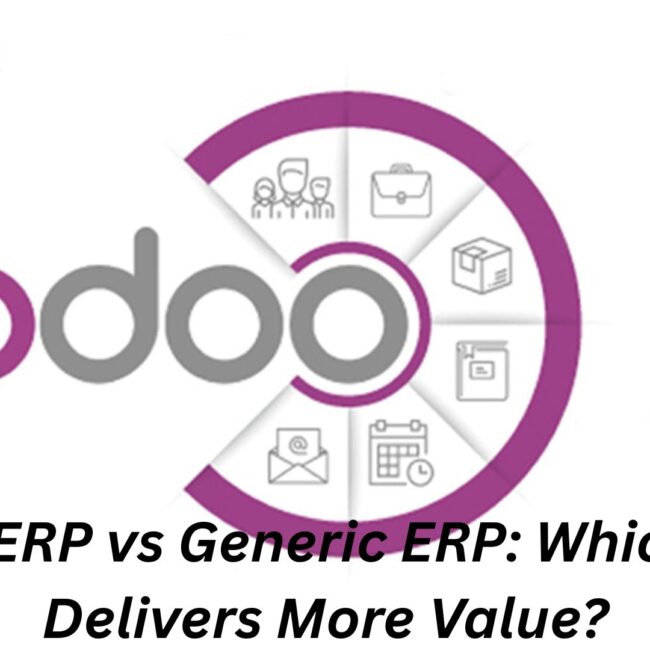
Plug Into Growth: ERP for Electronics Industry

How ERP Solutions Drive Innovation in the Electronics Industry
The electronics industry is fast-paced, innovation-driven, and highly competitive. Managing complex production lines, rapid product cycles, global supply chains, and stringent quality requirements requires more than traditional management methods. To stay ahead, electronics manufacturers are increasingly turning to ERP solutions for electronics industry.
An ERP (Enterprise Resource Planning) system integrates all core business functions—finance, inventory, production, sales, and customer service—into a single platform. This integration brings visibility, control, and efficiency to operations, making it a game-changer for the electronics sector.
The Importance of ERP in the Electronics Industry
Electronics manufacturers face unique challenges such as:
- Managing global and volatile supply chains
- Short product life cycles and frequent design changes
- High-volume, high-precision manufacturing processes
- Strict quality assurance and regulatory compliance
- Real-time demand forecasting and delivery tracking
Implementing a robust ERP for electronics industry addresses these challenges by providing end-to-end visibility and automation across business processes.
Key Benefits of ERP Solutions for Electronics Industry
1. Streamlined Inventory Management
With real-time tracking and automated inventory controls, ERP systems ensure:
- Accurate stock levels
- Reduced wastage
- On-time procurement
This is crucial in the electronics industry, where component shortages or overstocks can halt production.
2. Improved Supply Chain Visibility
An ERP solution for electronics industry connects suppliers, distributors, and internal teams. This enhances:
- Vendor collaboration
- Lead time tracking
- Real-time logistics coordination
3. Enhanced Quality Control
ERP software tracks quality metrics at every stage of the manufacturing process:
- Real-time defect reporting
- Compliance documentation
- Traceability for recalls
4. Faster Time-to-Market
Integrated planning and project management tools within the ERP system enable faster R&D and prototype-to-production transitions, which is essential in electronics.
5. Centralized Data and Reporting
ERP software consolidates business data, enabling:
- Advanced analytics
- Real-time dashboards
- KPI monitoring for decision-makers
Key Features of ERP for Electronics Industry
An ideal ERP software company serving electronics manufacturers should provide the following capabilities:
- BOM (Bill of Materials) Management
- Real-time Production Tracking
- Multi-Level Inventory Control
- Shop Floor Automation
- IoT and Machine Integration
- After-Sales Support & Warranty Tracking
These features help electronics manufacturers ensure accuracy, efficiency, and customer satisfaction.
Choosing the Right ERP Solution Provider
Selecting a reliable ERP solution provider is critical to implementation success. Look for vendors that:
- Understand the nuances of the electronics industry
- Offer scalable, cloud-based ERP options
- Provide strong post-implementation support
- Enable integration with IoT, MES, and SCM platforms
Top ERP software companies also deliver industry-specific templates that reduce deployment time.
Real-World Use Case
A mid-sized electronics component manufacturer adopted a cloud-based ERP solution for electronics industry to improve production visibility and reduce delays. After implementation:
- Inventory accuracy increased by 35%
- Customer satisfaction rose due to faster delivery timelines
- The company reduced overall operational costs by 20%
This demonstrates how a well-integrated ERP can create tangible business value.
ERP in the Age of Digital Manufacturing
As the electronics industry embraces digital transformation, ERP becomes the digital core that connects machines, people, and processes. With predictive analytics, AI integrations, and IoT capabilities, ERP for electronics industry is evolving beyond process management into a tool for innovation and strategic growth.
By aligning product design, production, supply chain, and sales under one digital framework, companies can:
- Adapt faster to market changes
- Innovate confidently
- Maintain consistent product quality
- Operate with agility across global locations
Conclusion
The electronics industry demands precision, speed, and control. ERP delivers all three—empowering manufacturers to manage their operations seamlessly. Choosing the right ERP software company and ERP solution provider can unlock massive operational and strategic advantages.
Whether you’re managing components, manufacturing devices, or coordinating global distribution, ERP solutions for electronics industry provide the foundation for scalable, smart growth.
FAQs
1. What are the key benefits of ERP in the electronics industry?
ERP improves supply chain visibility, streamlines inventory, and enhances production accuracy.
2. How does ERP help with electronics manufacturing?
ERP automates workflows, ensures quality control, and supports real-time production monitoring.
3. Can ERP software integrate with IoT devices on the shop floor?
Yes, modern ERP systems offer IoT integration for real-time data from machines.
4. What makes ERP essential for high-volume production in electronics?
ERP ensures accuracy, reduces waste, and synchronizes planning with execution.
5. Which ERP features are critical for electronics manufacturers?
Inventory control, BOM management, defect tracking, and supplier management are key.
6. What should I look for in an ERP solution provider for electronics?
Choose one with industry experience, strong support, and scalable cloud-based options.
7. Can ERP improve customer satisfaction in electronics companies?
Yes, through better delivery tracking, product quality, and faster issue resolution.
8. How does ERP software reduce operational costs?
By automating tasks, minimizing waste, and improving resource allocation.
9. Is ERP suitable for small and medium electronics firms?
Absolutely. Scalable ERP solutions are available for businesses of all sizes.
10. How does ERP support innovation in the electronics industry?
By enabling faster product development cycles and connecting R&D with production.





